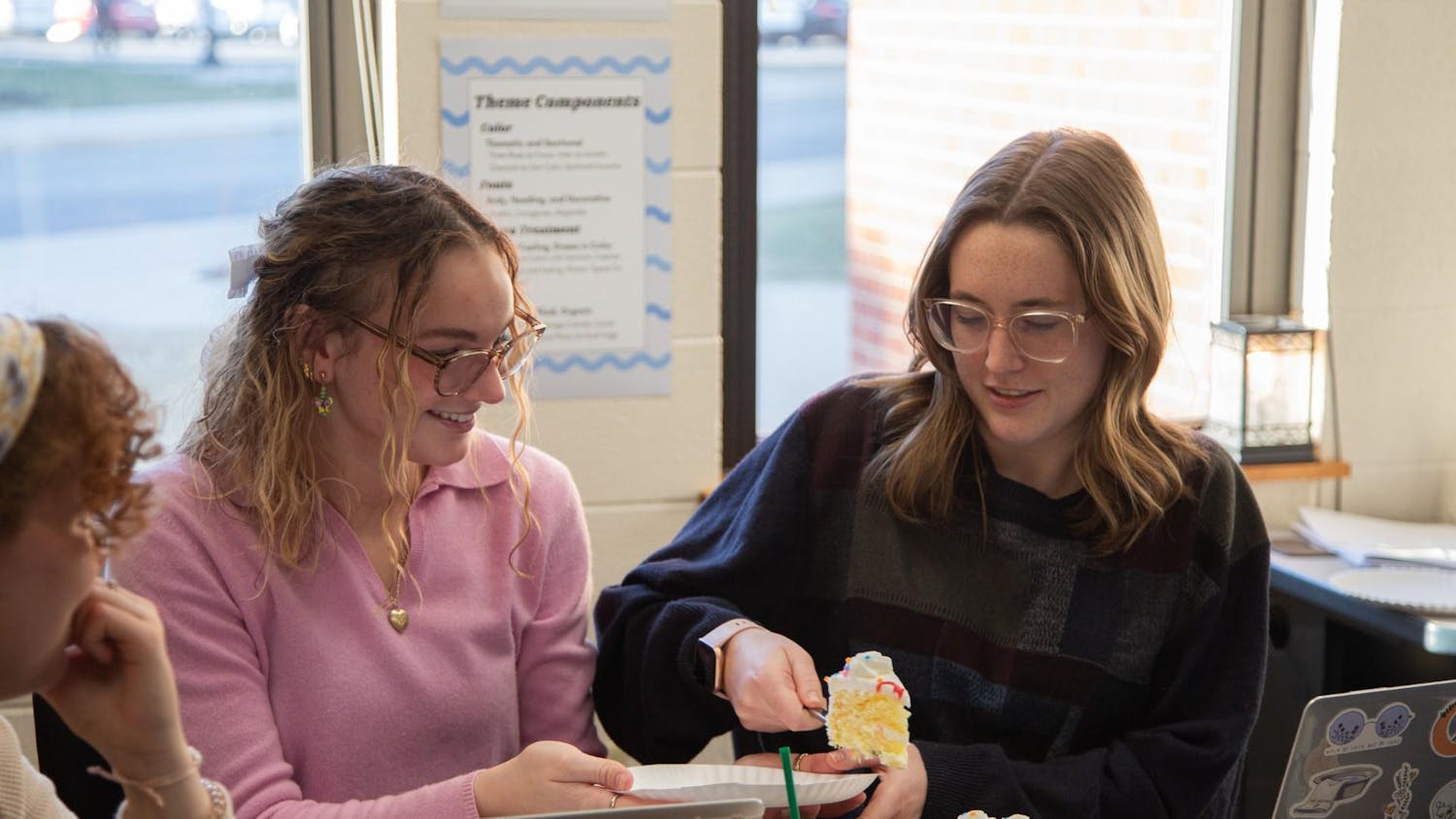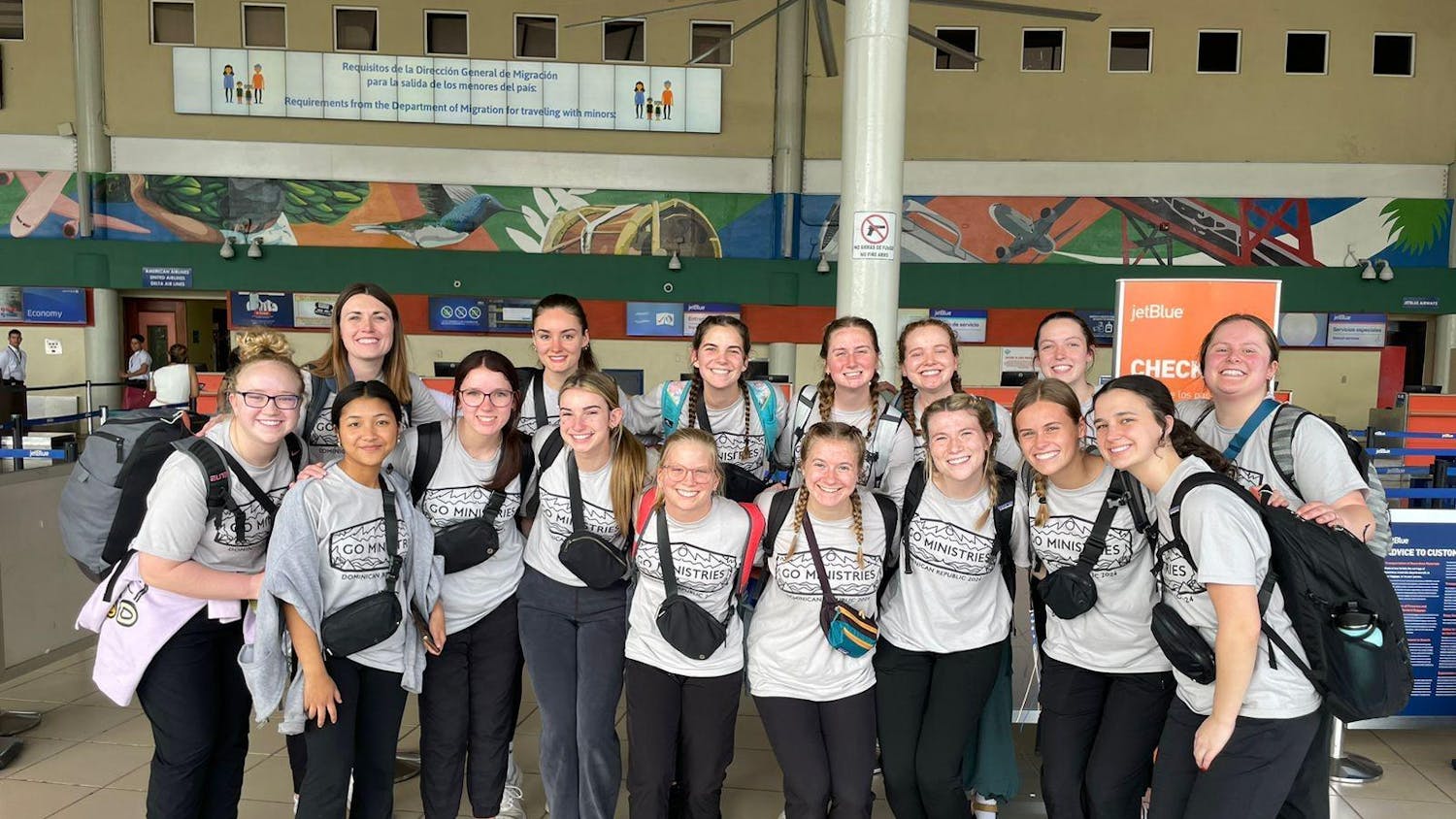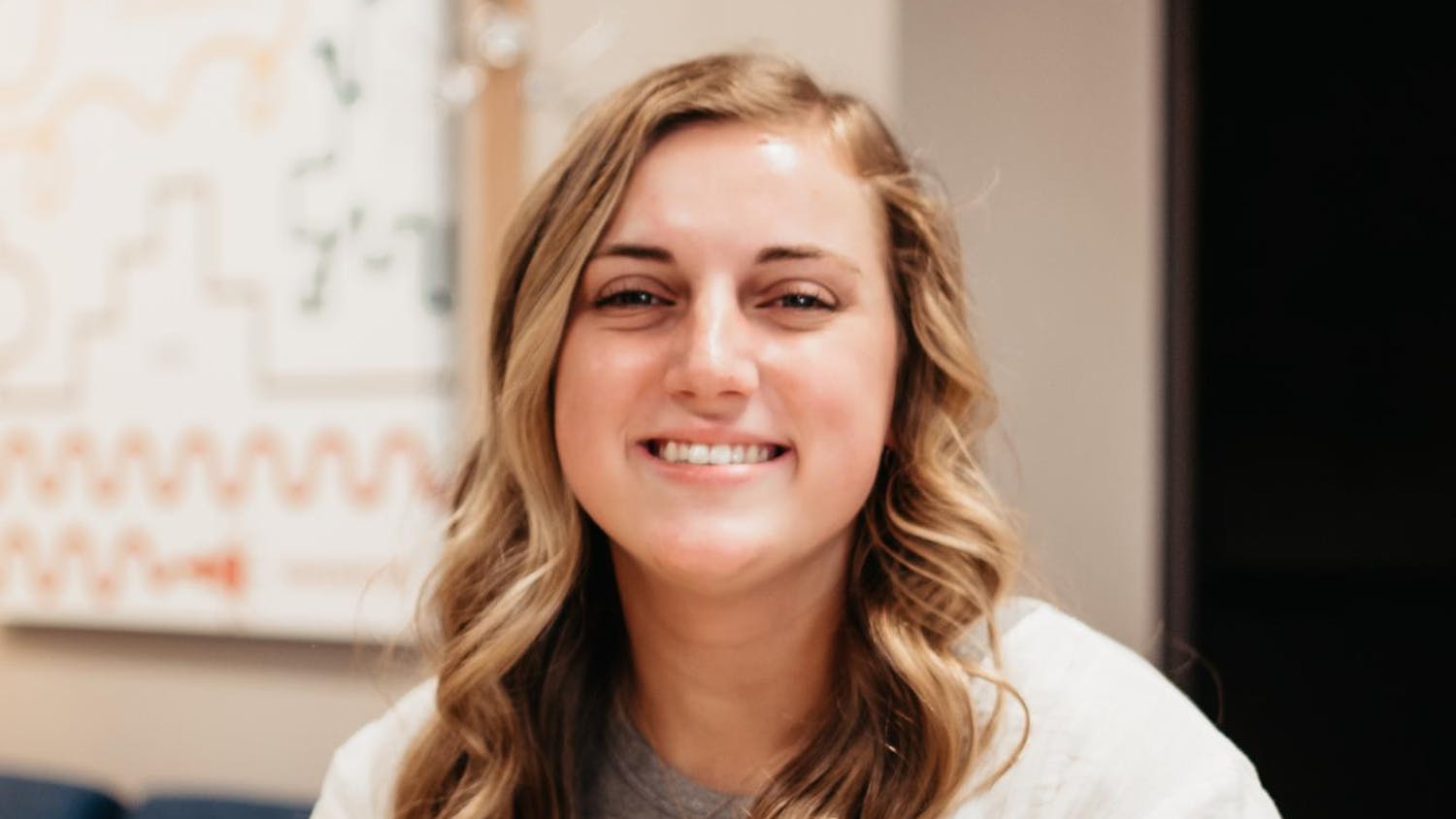One man's escape from violent Sudan to hostile Egypt to the hope of an education at Taylor
By Kari Travis, World EditorTaylor Alumnus Kenneth Elisapana ('02) was only 10 years old when it happened, but he still remembers feeling totally and suddenly silenced.
Silenced by his father's assassination.
Southern Sudan was a brutal environment to grow up in, Elisapana says, his voice steady, his thick Sudanese accent richly tinting his words.
Regional, civil conflict among the Sudanese people led to unspeakable injustices and abuses, especially against those living in the South - the injustices against which Elisapana's father died fighting.
Elisapana recalls feeling as if his own life was ending along with his father's.
"To me, personally, it was as if the home had collapsed," Elisapana said. "All my dreams for education and for becoming better were shattered. And I didn't know what I would do at that time."
This is what war does. In Elisapana's patriarchal Sudanese culture, it destroys homes and families. It ends opportunities for children to grow and make a better life. It causes starvation and, ultimately, death.
Each one of these is a reason why his own story should not exist, Elisapana says.
More than that, each counts as a reason why he never should have found his way to Taylor from halfway around the world.
But he did.
"I can't believe this is me," Elisapana says. His deep voice cracks a bit. "I put all of this story in the perspective of how God prepared Moses and took all the bad things and turned them into good. My story is sort of God's miracle in our lives. This is really what my story is about."
After his father's death, Elisapana and his mother moved from their home village of Jambo to Juba, the capital city of South Sudan. The atmosphere was crowded and oppressive, Elisapana says, because the Islamic government refused food or work to everyone who did not profess to be Muslims.
Elisapana, who was raised a Christian and clung to a personal faith in God, faced starvation. After several years of living in dire conditions, he saw only one option for survival: Escape to refuge in southern Egypt.
But there was no guarantee that he could even make it as far as the border crossing between Sudan and Egypt, Elisapana remembers.
The only road refugees could take out of the Sudan led them directly across the Sahara desert. Travel was treacherous, and water was scarce.
"We hiked some, we walked some to the border," Elisapana said. "Many people never made it there. . . . If you ran out of the water that you carried, you could die in the desert and no one would know. So many of the people died in the desert. I saw so many dead bodies, and some of them were my friends."
There was no relief from oppression even when Elisapana and other refugees did make it to the Egyptian crossing.
He pauses for a moment here, cutting off his train of thought after what has been a 20 minute stretch of storytelling. Then the silence breaks under his profound voice.
"I'm sure you've seen stories about crocodiles in the Nile. So many people died trying to cross into Egypt. A lot of people were eaten by those things. Alive."
Elisapana was one of the few who made it across the river. With no money, no food and no place to stay, he felt lost.
It was at that moment God provided a job and a windowless room to sleep in, Elisapana says.
He lived in horrendous conditions and was ruled by Egyptian laws that provided no justice. Wages paid were half the originally agreed upon amount, and refugees had no legal platform to protest.
"The only good thing that came to me was a Bible, and everyday I would read that Bible," Elisapana said. "There was also a church where all the European diplomatic representatives would worship. So we would often go to that church on Sunday, and then after church they would give us some food and donuts . . . ."
Elisapana's voice shifts to a lighter tone, and he laughs at the next memory.
"So, anyway, one day after the service was over, a lady said to me, 'Kenneth, how did you come to be in Egypt?'
He pauses and chuckles again before continuing.
"It turns out that this lady was my Sunday School teacher from back in Juba (South Sudan) when I was a boy."
The miraculous turn of events that followed was what brought Elisapana to attain his long-time dream: a college education.
His former Sunday school teacher returned to her church in England and told the congregation about Elisapana. They responded by raising enough money for him to go to college, and before long Taylor University became his new home.
Elisapana now recognizes this opportunity was just the beginning of a new calling from God - a calling that would bring him out of poverty and raise him to a position of Christian leadership in the world.
"When I came to Taylor . . . I couldn't believe that all this food was put together just for the students . . . . After that first impression, I could not sleep at all. So God used to bring into my dreams a picture of the kids back in the Sudan who are starving until they die."
After the dreams started, Elisapana began pursuing humanitarian relief for his home country. He got involved in an organization called South Sudan Hope and even traveled to Washington, D.C. during spring breaks to advocate on behalf of his people.
After graduating from Taylor in 2002, Elisapana went on to Southern Illinois University to earn his masters degree on a full scholarship. His advocacy work continued, and his legislative efforts ultimately allowed him to help bring an end to the Sudanese civil war.
In January of 2011, Elisapana saw his broken and bruised region of the country finally grow into a nation: The Republic of South Sudan. It was shortly after that God presented Elisapana with a new task.
"I will be working for the government of South Sudan as Director of Cooperation," Elisapana said. "There are 10 states that make up the Republic of South Sudan. There are so many opportunities for me right now, I would have the possibility of being even higher up in the government eventually."
Grace and mercy alone are what shape his story, Elisapana says, his voice ringing with conviction. It is because of God that Elisapana is able to find his voice and break free of bitterness.
"Really, God is working in our lives, if only we can open our ears and listen to God's voice," Elisapana said. "There is a silent, silent miracle each day in our lives. This is my story."



